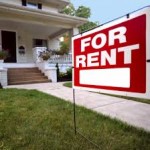
After the housing market crashed in 2008, the number of single-family renting households has grown by leaps and bounds. And it doesn’t appear like that increase is going to slow down any time soon.
The National Association of Realtors expects that within the next 10 years, 5 to 6 million new renter households will be created which means that the cost of renting will continue to increase.
With that in mind, here a list from Homes.com of the top 10 things every renter needs to know.
1. Be prepared: Do your research and make sure you have all of your paperwork in order when applying for a rental property. Educating yourself about the rental process and the property itself can prove invaluable in your search.
2. Budget wisely: Financial experts suggest that renters shouldn’t spend more than 25%-30% of their monthly income on rent. That’s especially important considering 27.3% of renters spend more than 50% of their monthly income on housing. There are other costs associated with renting, like daily commuting costs or lifestyle amenities, to consider as well.
3. Choose which amenities are important to you: Most people want a beautiful view, but that usually comes with a price. Is having a fitness center more important to you than an infinity pool? Choose the things that are most important to you and don’t worry about the rest.
4. Decide on your ideal location: As the old saying goes, location, location, location. Is the rental in a good school district? Is the surrounding neighborhood conducive to your lifestyle? Do you want an urban environment or something a little more laid back? Narrowing down your search to specific areas will make your search much easier.
5. Search outside the box: Renting doesn’t always mean renting an apartment. There may be homes available for rent or units in a condominium complex as well. Widen your search parameters and you might find other attractive options. Looking to cut costs? Consider a roommate.
6. Never sign a lease without visiting the property first: It’s critical to see the actual unit you’d be renting, not just the model unit. Check the fixtures, faucets and other features of the unit to make sure everything works. Perk your ears up and listen to your neighbors. You don’t want to be surprised by neighbors who enjoy playing loud music every night at 2 a.m.
7. Review the lease agreement thoroughly: Read all the fine print and make sure that there aren’t any provisions in the lease agreement that would inhibit your lifestyle. Pay attention to the effective date of commencement and duration, security deposit amount paid (whether it is interest-free or not), and the circumstances that make the deposit refundable. Additionally, consider rent escalation, grounds for termination, and the notice period required for termination of the lease. All of these may be important during your lease term.
8. Purchase renter’s insurance: What happens if there’s a fire in your building? Or catastrophic water damage? The landlord’s insurance policy will take care of the building itself but not your stuff. Make sure you get a renter’s insurance policy to protect your stuff in case of any catastrophic event, theft or anything else that may happen.
9. Take the steps necessary to get your security deposit back: Make sure you take pictures of the space before you move in and after you move out. Having that protection will help to ensure that you get your deposit back. When your lease term has ended, insist on completing a final walk-through with the property owner. That way, both parties can compare the space before and after your occupancy.
10. Be efficient with space: It’s your home for the life of your lease term, so make the space your own. Embrace your interior decorator and learn about Feng Shui. Reduce your clutter and live a clean, peaceful life.
Source: Housing Wire